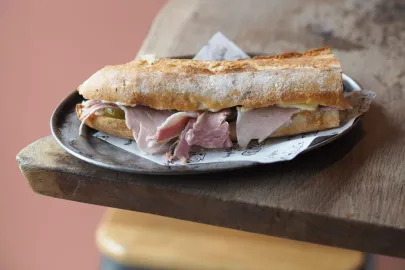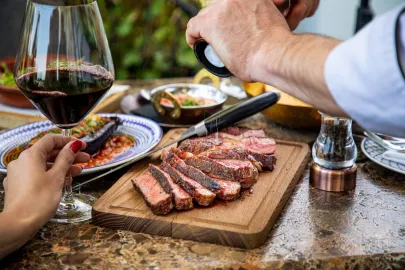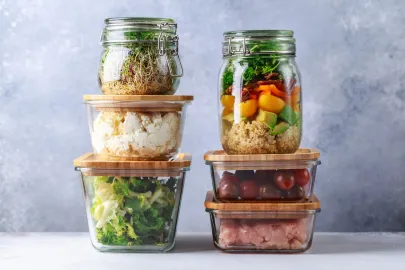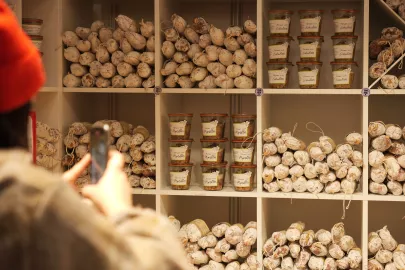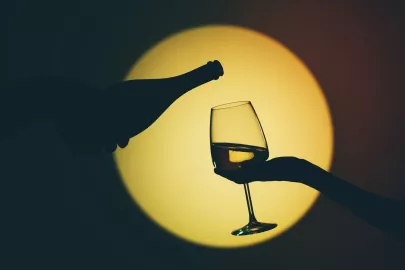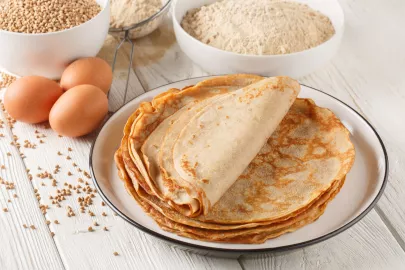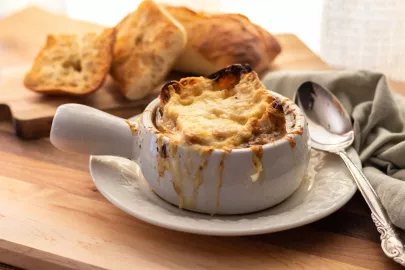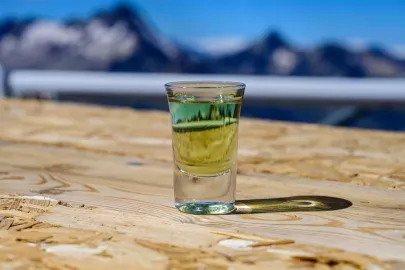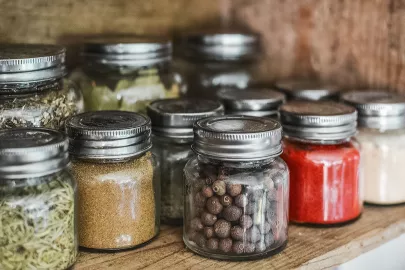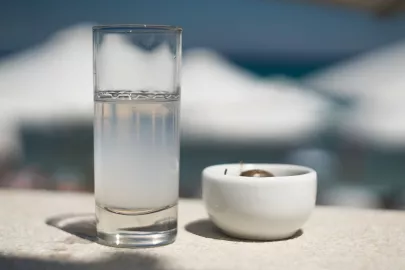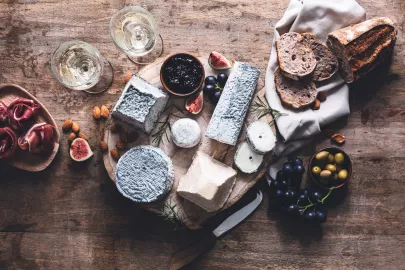The New French Wine: A Q&A with Award-Winning Wine Writer, Jon Bonné
In a sea of newly released wine books, it’s almost impossible to find one that both tells a story and acts as an encyclopedic reference all at once—enter The New French Wine, the latest powerhouse work from award-winning author, Jon Bonné. Taste France Magazine’s Vicki Denig sat down with Bonné to talk all things French wine, as well as the author’s backstory, biggest inspirations, and what he’s got coming up next.
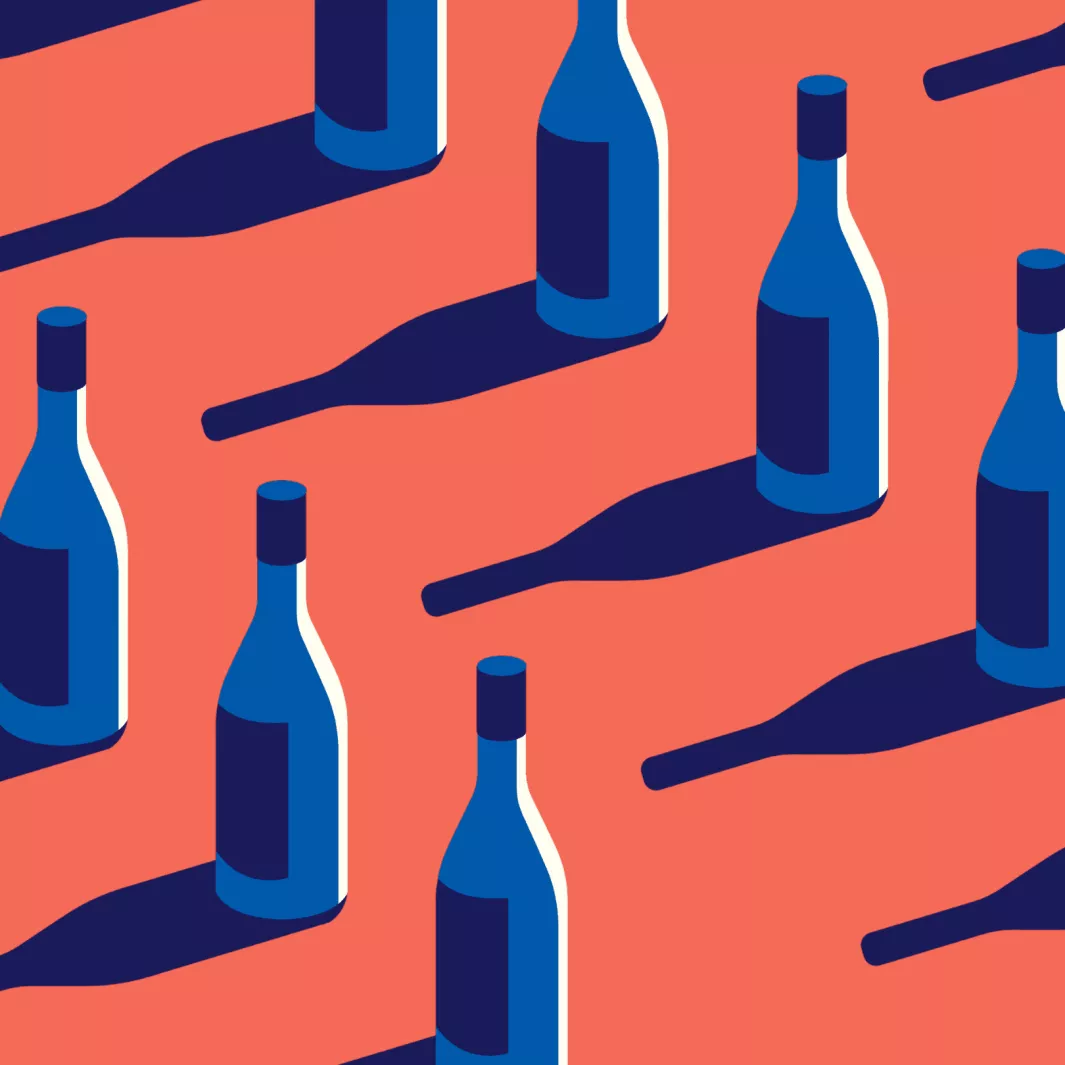

© ©https://jonbonne.com/
Author’s note: I’ve been lucky enough to call Jon one of my closest friends for almost four years now, not just within an industry context, but also on a personal level. We first met in December 2018 at a dinner at the James Beard House in New York, and if I’m honest, I was pretty psyched to be brushing elbows with one of my biggest wine writer inspirations—little did I know such a beautiful friendship would unfold. Over the years, Jon and I have shared many memories, from downing bottles of wine at some of the best caves in Paris to simply laughing over beers at Brooklyn’s grungiest dive bars—he even sat and waited for me to cross the finish line at the end of my first half marathon (bottle of Champagne in hand, of course!) Beyond his immense writing talent, Jon is an incredibly supportive cheerleader for those he loves, a fervent champion of honest farmers, and above all, the textbook definition of an excellent friend. I am extremely lucky to know him in both a personal and professional capacity.
Tell us a bit about your background. Where are you from and how did you get into wine?
I’m from New York, and I got into wine because my father had somewhat of a strange career trajectory. He was a corporate executive, but also a trained chef, so food and wine were always in our house when I was growing up. He ran a gourmet food and catering business and he was buying some of the first real baguettes you could get in NYC (this was back in the early 1980s), so that was when learned how to cook and drink wine—while still in single digits!
I didn't really think much of it at the time and sort of forgot it all. I went off to college, studied English and political science, and focused on journalism. I worked in journalism for 15 years in New York and then Seattle, where I worked for MSNBC. I was really into the wine scene in Washington, which was going off at that point, and I started getting back into wine little by little. I began buying cheap Bordeaux, thinking that I was fancy, then started sneaking wine and food into my stories. I realized that writing about wine was a lot more fun than writing about mortgage rates! From there, I suckered my editor into letting me write a wine column.
Your latest book, The New French Wine, comes 10 years after your first book, The New California Wine. Tell us a bit about the inspiration for this concept, ‘The New ___.’
If you're looking for a brand in wine, talking about what’s new is a great place to start. The California part was almost accidental, in that I was really lucky to be there as things were changing dramatically. The French part was not a mistake, but was more proof that you should never get drunk with your editor and let her talk you into a book idea! What I discovered as I started working on the book was that what I thought were very small elements of change in France were in fact a tiny part of everything that’s happening there— the change in France is more profound than anything I’ve seen in any other wine region ever.
What are some of the changes you experienced?
Essentially every wine region in France has been reinventing itself for 25 years now, and these changes encompass everything: farming winemaking, wine styles, the interpretation of terroir, the way that appellations work, the cultural framework of wine, and really more than anything, a very decisive choice for quality over quantity. Quantity of French wine is dead.
The New French Wine is broken into two volumes. Could you explain a bit about the structure of the book?
The practical part is that it got big enough that the spine would’ve cracked as one volume! In the course of figuring out how to restructure it, we did some thinking around how people actually use wine books, and when you’re telling a story, people want to read the story cover to cover—that’s the narrative. However, when they're looking for producer information, it's completely encyclopedic. People need a reference, they're not there to read, so we wanted to separate those two functions. Above all, we wanted the book to be usable.

© ©https://jonbonne.com/
Which types of producers are featured in The New French Wine? How did you go about choosing who to write about?
The rule of thumb was that there was no rule of thumb. There are people featured who’ve made wine for two years, as well as people who've made wine for 10 generations. What I had to ask in each case was whether the domaine in question is pushing the culture forward—that is, are they helping to rewrite what we know about French wine in some way, and of course, is the wine delicious. There are very established producers in the book, whether because there's a new generation or because they've really taken a stand on how they believe their appellation should be constructed, and equally, there are people who are for sure established who didn't make the cut, simply because it wasn't clear that they weren't just continuing the status quo. Same with brand new producers; there are new producers who are contributing in a big way, and there are plenty of new producers who aren’t featured, as they don’t really have a lot to say or to add. That was very much this barometer – who was helping to usher in change.
How long did it take you to write The New French Wine versus The New California Wine?
It took me eight years to finish The New French wine versus about two years for New California, but it grew out of work I’d been doing for a long time anyways, so it was actually somewhat easier, as it wasn’t a brand new project. However, I’d written tons about France, but to really understand the reality on the ground, I truly had no idea what I was getting into. I think that right now, the only way to understand what’s going on in France is to immerse yourself and to spend time there. If you try to shorthand it, you won't understand it, and you certainly won't see the whole story.
What inspired you to write The New French Wine versus The New XYZ Wine of another country?
Never listen to your editor when you’re tipsy on Gamay! I knew I wanted to write something about the Old World, but I wasn’t sure what; so when my editor proposed France, I was like sure, that's great. As I step back to think about it, the two truly formative wine regions in my life have been France and California, so now I can mic drop and walk away! Haha. But really, it was clear that versus any other part of the world, this was a story that needed to be told—and now I understand why people don't write books like this that often. It’s a lot!
Tell us a bit about your love of France. Would you consider yourself a Francophile?
Well, of course! I have an apartment in Paris, and I live there part-time. I grew up very much a Francophile, meaning that I learned about French food as a kid while working in my father’s store selling French cheese. When I was in California critiquing wine from the state, the cheap shot at me was that I was just a Francophile who didn’t appreciate its wine, which is funny, considering where California wine has gone since the book was published. I have a deep, deep love for France, and certainly not any less so after the time spent there—if anything I love it that much more.

© ©https://jonbonne.com/
What do you love most about French wine, food, and culture?
The thing about French wine that amazes me is that whenever we talk about the radical and new, it’s taking place on land that is very, very old in terms of winegrowing. Everyone who thinks that there’s some truly new and undiscovered wine country in France doesn't really understand the history, because there are fewer vines in France today than there were any time since the French Revolution, which is to say there used to be vines grown in every department. So, the fact that there's all this new stuff happening in a land where questions have been asked and answered for centuries is remarkable to me, because it would be very easy to be lazy and just maintain the status quo. What I love about French food is that, at its absolute best, it has a remarkable understanding of purity of flavor. It’s a very orderly cuisine, but there’s also an enormous amount of fussy and boring French food.
With French culture, the complicated thing for me is that it’s extraordinary, but also completely addicted to its own mythology. In order to write this book, I had to spend a lot of time tearing apart the common myths of France—like the notion of patrimoine, the sense that ‘we do things because we've always done them that way,’ which is only true in the sense that they’ve done something in said way for the last 10 years… but before that, it was different, and 10 years before that, it was different. The French are remarkable at creating their own myths and bathing in them, even if they're not true and valuable, and it’s probably made worse by the fact that the French myth is so sailable. It’s so romantic, it draws so many people in—and I understand that, but to me, the actual reality of France is so much more interesting. You don't need to bathe yourself in lavender and look at the long shadows of twilight to see that this is a remarkable place that’s given us our reference for so much food, so much wine, so much of the way that we in the Anglo-Saxon world live our lives.
Who are some wine writers / hospitality industry folk that inspire you?
There are a ton of people in the neo-bistro movement in Paris who are similarly revolutionary in how they’re transforming this view of French culture – Dani Lavadenz at Saint Sebastien, Rob and Jess at Folderol / Rigmarole, and Tatiana at Le Servan are a few examples. In terms of wine, Pascaline Lepelteir is a remarkable and astonishing ambassador. For writers, I’ve really been impressed with Yulia Ezhikova, who is a michelin starred sommelier in Hong Kong, but also writes for the South China Morning Post—I never thought I would find a michelin-starred sommelier with more radical ideas than me!
In terms of people in the wine industry, there are tons, though I will call out one couple in particular because of the work they’re doing in the system, and that’s Gonzague and Claire Lurton. Here’s a family with multiple class growths in the Médoc who moved into biodynamics, forced biodiversity in Margaux, and are working entirely within the appellation system trying to improve probably the most out-of-date wine culture in France.
Where are some of your favorite places to enjoy French wine in NYC?
My current list includes Gus’s Chop House, Red Hook Tavern, Chambers, Four Horsemen, La Compagnie des Vins Surnaturels, Bar Bête, and Maison Premiere to name a few.
What’s next for Jon Bonné? Can we expect a new book anytime soon?
You can expect a new book sometime soon, though I’m not sure it’ll be about wine. Cearly, The New Calvados needs to be written… haha.

© ©https://jonbonne.com/
Contributor
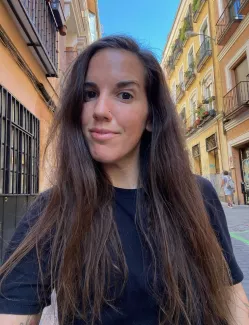
Editor

